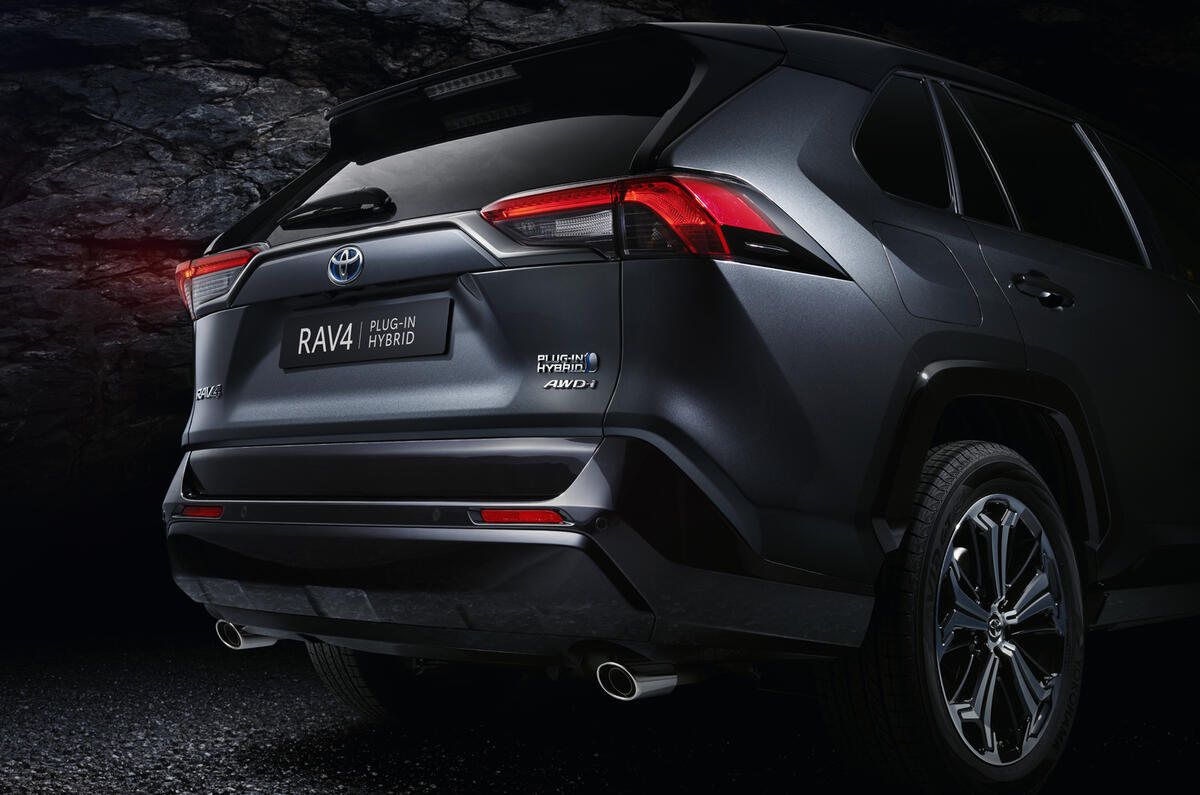Toyota has released new details of its new RAV4 Plug-in Hybrid, which will arrive in the UK with a 302bhp powertrain capable of 46 miles of electric-only running.
Available in two trim grades - Dynamic and Dynamic Premium - the PHEV flagship will be available to order from 4 January, with prices starting at £47,395. That price represents a slight premium over its Suzuki Across twin, which went on sale last month, and is around £16,000 more than the starting price of the entry-level, front-wheel-drive RAV4.
As with the standard RAV4, Dynamic trim is equipped with 19in alloy wheels, a 9.0in touchscreen, heated front and rear seats and LED headlights as standard. The Premium option bumps the price up to £50,895, and adds black leather upholstery, a panoramic roof, head-up display and upgraded sound system. Customer deliveries will get underway in the second quarter of 2021.
The fifth-generation SUV was launched in 2018, but it was initially offered in the UK with just one powertrain option: a 2.5-litre petrol-electric hybrid producing 215bhp in front-wheel-drive form and 219bhp in four-wheel-drive models. Toyota says the new machine is the most powerful RAV4 – and the quickest alternatively fuelled Toyota – ever.
The new plug-in variant features four-wheel drive as standard and uses the same 173bhp 2.5-litre petrol engine as the regular hybrid. That engine is mated to an 18.1kWh underfloor battery and a pair of electric motors - one with 180bhp on the front axle and another with 54bhp at the rear.
The new battery is a high-capacity lithium ion unit, with the powertrain featuring a boost converter on the hybrid’s power control unit.
Toyota says the system produces 302bhp in total, emits just 29g/km of CO2 (according to 'WLTP-standard data') and can propel the RAV4 from 0-62mph in 6.2sec. The electric motor is capable of running at speeds of up to 84mph with no intervention from the engine.
READ MORE
Toyota RAV4: fifth-generation SUV reviewed
New Toyota Highlander to come to UK as all-wheel-drive hybrid

















Join the debate
Add your comment
Given the significant increases in BIK taxation in the last few years. It should not be a surprise that company car drivers will choose a vehicle that minimises the amount of tax payable. I moved to a BEV primarily for this reason, but accept that BEV's are not yet attainable or viable for everyone. If manufacturers want a slice of the company car market, then they have no choice but to produce Phev's. And as company provided fuel for private use is now so overtaxed as to be unviable, drivers will be incentivised to plug-in, in order reduce their running costs
Wonder how much of that 48k will be left after 5 years, compared to a normal rav. Tax dodgers only need apply.
Tax dodger and proud. At the end of the day its a tool, so the least I pay for a work tool the better. Most people don't pay any tax on say a laptop or a phone or a table saw provided for work, even if you don't always use them just for official work.
Rubbish comparrasion, most people do pay vat on a phone or laptop, and just how often would you use a table saw outside of work. Once there true economy is known the tax dodge will close